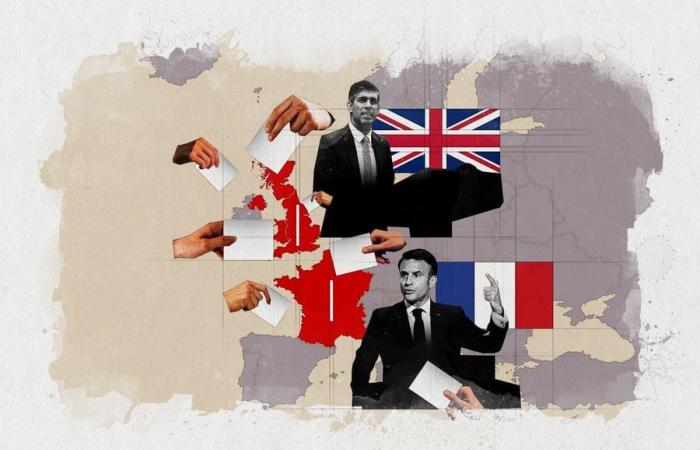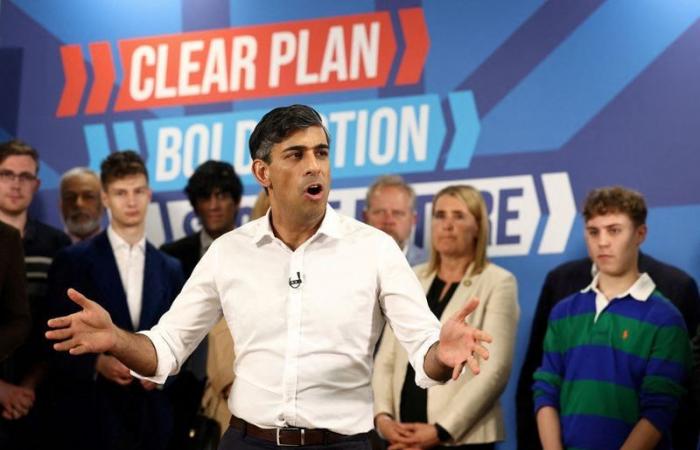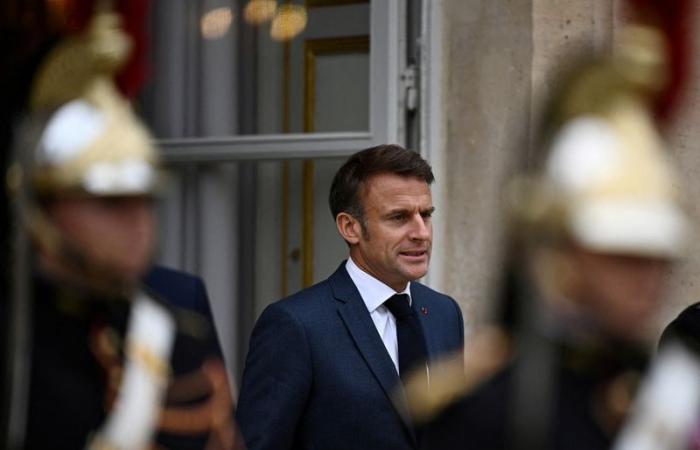Like in History of two cities, by Charles Dickens, if you compare the mood in London and Paris you could see two societies in completely opposite directions. In the United Kingdom, after 14 years of conservative government and a Brexit in the middle, Labor is preparing to regain power after the elections on Thursday, July 4. But in France the pendulum is swinging the other way: Marine Le Pen and her “dolphin” Jordan Bardella are getting ready for a historic victory in the first round of the legislative elections that Emmanuel Macron had to bring forward after the onslaught of the far-right in the elections. Europeans.
Although the political routes of both powers seem opposite – on the island they move to the left, on the continent towards the extreme right – one factor seems to unite the British and French: the advance of more conservative populism, which in the United Kingdom It is expressed in the second place that Reforma UK, Nigel Farage’s party, would obtain, and in France in Le Pen’s National Rally, supported by Reconquista, Éric Zemmour’s party. On both sides of the English Channel, experts indicate, it is democracy and the economy that would be on trial.
After losing to the National Rally in the European elections at the beginning of June, Macron called for early legislative elections, in a risky but pragmatic bet, according to experts. The call to the polls to elect members of the National Assembly, on June 30 and July 7, seemed to be a call to put his government to a referendum and regain an absolute majority, in the hope of implementing his program with greater powers until May 2027, when he leaves the presidency.
Now, however, it seems to be a vote on the far right, and it is not the ruling party that is leading the “republican barrier”. Polls indicate that the National Rally and its allies would win a majority with 36%. In second place would be the leftist New Popular Front, with 29%. Only in third place would Macron’s “Juntos” alliance be left with 22%.
The three-way split in French politics would leave the legislature “in a deadlocked position,” making it difficult to elect a prime minister with the Assembly’s approval.
However, if the National Rally’s lead were to become more pronounced, it would lead to something that the French have already experienced twice: political cohabitation. This was the case of the socialist François Mitterrand (1981-1995) with two conservative governments, and Jacques Chirac (1995-2007) with a socialist. Now it could be the case that the centrist Macron will have to have the far-right Jordan Bardella as prime minister.
The 28-year-old, named by Marine Le Pen as the leader of her party, has shown himself in the campaign as the “future head of government”, who, among other matters, holds the head of government. If cohabitation occurs, Macron would only be left with the “sovereign” powers that the Presidency gives him: international relations, command of the Army and the veto of certain laws.
Without fully publishing his government program, Bardella has already announced, with a view to “calming citizens”, that he will delay his “priority measures”: the repeal of the pension reform or VAT cuts on essential products. Regarding immigration and the situation of Muslims in France, he also promised to postpone his idea of banning the wearing of the Islamic veil in public. Of course, he would keep his promise of a “tough hand” in security and the fight against crime.
David Doucet, a French journalist and expert on the extreme right, told Third that Macron’s bet has served everyone except his sector. “After the dissolution, it has been reported that Macron would have told someone close to him: ‘I threw the live grenade at their legs, now let’s see how they get out of this.’ Macron wanted to explode the political panorama. In a sense he was successful, because the right exploded, and a part has joined the extreme right, but the left, which we believed to be irreconcilable, ended up allying itself and today represents a threat to the President,” he noted.
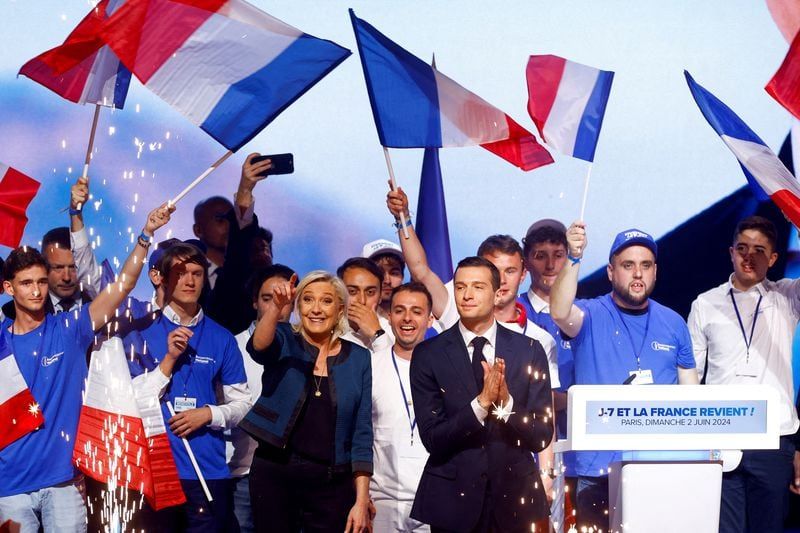
“Today, his own sector regrets this decision to dissolve the Assembly, because there are many possibilities that the presidential party will emerge even less strong from this election, compared to the previous one,” says Doucet.
The United Kingdom, for its part, is experiencing its own changes. The Conservative Party, led by Prime Minister Rishi Sunak, is heading for a virtually inevitable electoral defeat on July 4, while the Labor opposition, led by Keir Starmer, prepares to return to 10 Downing Street. According to YouGov, Labor would win 422 seats against 140 for the Conservatives.
But beyond the seats, the Reform UK party, led by Nigel Farage, would “steal” a good percentage of votes from the Tories. In voting intention they were tied: 18% for the conservatives and 17% for the populist party. The Labour Party, for its part, would get 36% support. Farage had been “missing” from local politics, after achieving the Brexit victory in 2016.
Like his peers on the continent, Farage has focused his speech on immigration, going so far as to describe the arrival of migrants in the United Kingdom as an “invasion.” As in France, one of his obsessions is young Muslims, whom he accuses of being a “deeply anti-British” group.
University of Essex political science professor John Bartle comments that Farage “appeals primarily to more traditional nationalist voters in the middle class, and to working-class voters concerned about immigration and the resulting competition for jobs, pressure on public services and cultural differences. It is the type of electoral coalition that Margaret Thatcher built in the 80s.
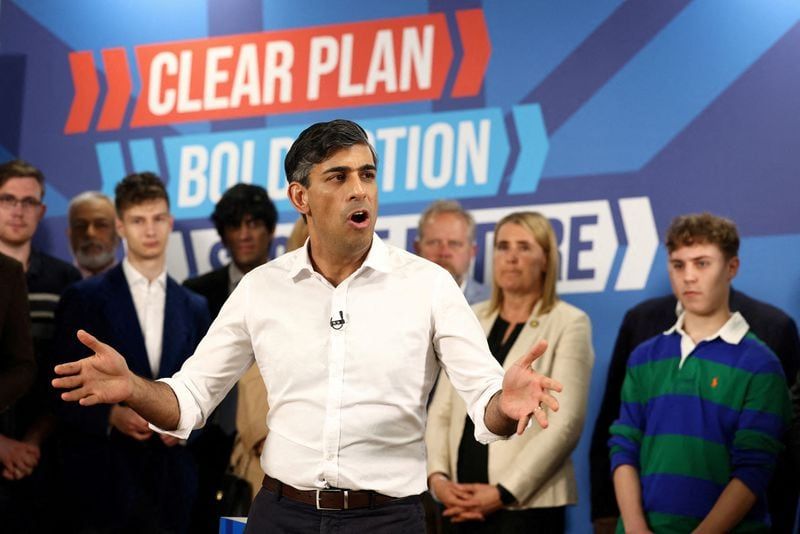
“Farage says the UK has not yet taken advantage of Brexit. Many of his voters do not recognise the limits of national sovereignty, the need for cooperation with other countries and the need for international bodies to exercise power or influence over British institutions,” Bartle said.
In turn, the Conservative Party sees how its own voters are beginning to shift further to the right, and how Sunak will have to say goodbye to power. “Even though he was believed to be dead politically, Farage managed to relaunch himself with his party, and he did so by accusing the Conservatives of having ‘betrayed’ Brexit, when it comes to migration and deregulation. His return is a rejection of the conservative right, and of the outgoing prime minister, who is very politically weakened,” Doucet explains for his part.
The British legislative election system does not help Sunak much either, since there is no second round as in France, and the seats are simply won by the candidate with the most votes.
“Reforma UK is unlikely to win many seats in these elections. However, if support for your party increases by 4 to 5 points in key constituencies, this may reduce the share of the Conservative vote and may mean that Labor wins many seats with a relatively low share of the vote. This will affect the political dynamics of the United Kingdom in the next Parliament. The Conservative Party is likely to move to the right on immigration and national sovereignty to neutralize the threat of Reform UK. The Conservative Party that emerges after the general election will be very different from the one led by Sunak in these elections,” Bartle projects.
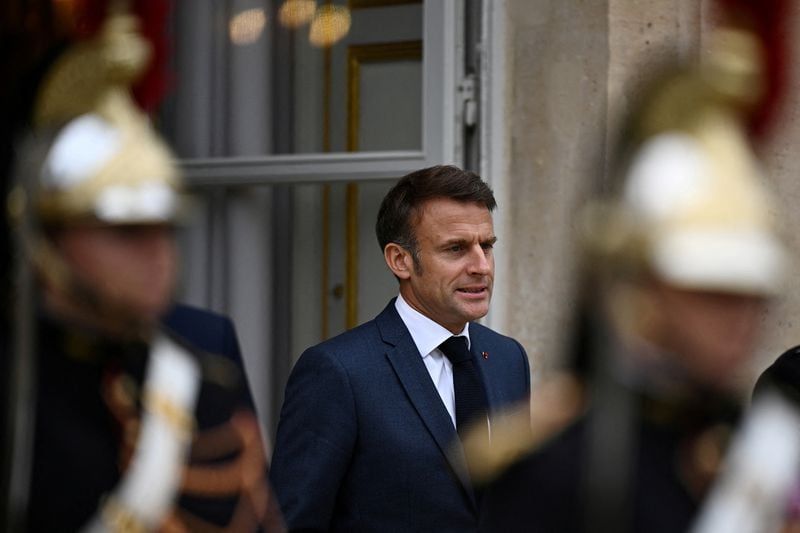
The rise of the European far right seems to have similar explanations: developed countries with economic problems, on the one hand, and a significant flow of migrants.
From the French side, Doucet assures that purchasing power is a key factor, along with a feeling of “abandonment” of the State. “Political power seems distant and public services are increasingly rare in rural territories, while Macron has pursued a fairly liberal policy. The feeling of disconnection has never been felt so strong between the people and the elites.”
According to Doucet, there is also a fundamental questioning of democracy. “We are seeing a populist upsurge almost everywhere in Europe. That a man as demagogic and xenophobic as Nigel Farage is making such a resounding comeback is worrying, as is the fact that a party as populist and ‘catch-all’ as the National Rally has become the leading party in France. The old European democracies seem to be losing strength. How can we give them new life? This is the question facing the governing parties, while the populist temptation has never seemed so strong,” says the French journalist.
For Bartle there is also a challenge to the world order, with countries seeking to restore national sovereignties: “Le Pen no longer opposes France’s membership in the European Union, but, like Farage, he accentuates national interests, which could destroy the EU from within. All over Europe there are parties that want to stop international cooperation and restore national sovereignty. The same thing happens in the United States, where Donald Trump promises to ‘make America great again’. The liberal world order based on international law and supranational organizations that was established after 1945 is threatened.”

